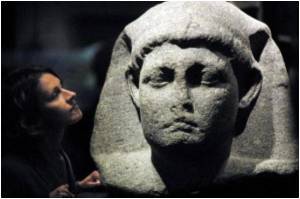On the long held theory that Cleopatra VII, the last pharaoh of Egypt, committed suicide along with her two handmaidens soon after the conquering of her country by Rome, a new book has cast doubt.

But Pat Brown, author of the book 'The Murder of Cleopatra', believes that Cleopatra was murdered and that the events leading up to her death are not the ones that have been reported for centuries.
Every book of Cleopatra's life and death tells the same story; a rendition of a "history" written by the Greek-turned-Roman historian, Plutarch.
But, writing on the Huffington Post, Brown has raised questions about how and from where Plutarch, who wrote his account of the queen some hundred years after she died, got his information.
She noted that if Cleopatra was determined to kill herself, surely she would have used poison, rather than a cobra, because poison is 10 times more efficient and manageable than dealing with a snake.
The right poison can achieve a quicker and more pleasant death than the Naja Haje, the Egyptian cobra, which is believed to be the snake Cleopatra used in her death, she said.
Advertisement
This testimony of Plutarch, given so many years later, lacks logic, science, and evidence of any believable sort, she said.
Advertisement
Source-ANI







